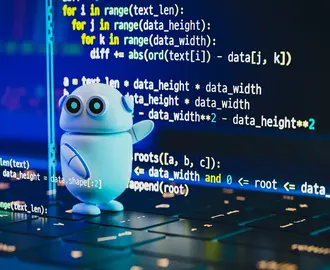An increasing number of commercial real estate assets are becoming obsolete, due to shifting market conditions, evolving work patterns, and sustainability imperatives. JLL, a global leader in real estate services and solutions, needed a framework that would help predict this obsolescence, assess investment risk, and evaluate strategies for repositioning assets to maximize their long-term value. Working with a team of MIT Real Estate Lab (RE-Lab) students, they developed a predictive model to do the job.
“This project brought together data science and real estate development in a practical, high-impact way,” says Master of Science in Real Estate Development student Jose Viquez Brenes, MSRED ’25. “Touring trophy assets on the ground with JLL helped anchor our analysis in reality and sharpened my perspective on what future-proofing really looks like.”
Building obsolescence occurs when a commercial real estate asset loses its relevance, functionality, or financial viability due to a combination of internal deficiencies and external market conditions. The MIT students developed a framework that defines and assesses office obsolescence in New York and Boston, based on expert perspectives, case studies, and market data. The model is also capable of identifying ROI-driven retrofit or conversion strategies tailored to near-term regulatory deadlines and market opportunities.
How data science can make cities more sustainable
“It was eye-opening to see how data-driven strategies—like the ones we developed—can help identify and reposition underutilized assets to create more resilient, sustainable buildings,” says Master in City Planning student Khadija Ghanizada, MCP ’25, who specializes in city and urban planning. “This experience has reinforced my interest in pursuing a career at the intersection of data, real estate, sustainability, and social impact.”
The MIT team also made recommendations on how to apply the framework more broadly beyond New York and Boston, providing actionable insights for investors, policymakers, and developers. According to Viquez Brenes, the whole experience helped him apply academic theory into real-world decision-making.
Analyzing why certain assets fall behind while others thrive gave me a strategic lens for evaluating value-add and adaptive reuse opportunities. It reinforced my interest in repositioning and gave me the tools to apply data-driven thinking in my future work.
“The project gave me a much clearer pulse on both cities’ markets, and I’ve been able to leverage that knowledge in conversations with industry professionals and interviews,” says Admadjaja. “Having firsthand experience working with JLL’s research team not only gave me confidence, but also provided a bona fide understanding of how investors and policymakers are thinking about obsolescence today—something I’ll carry forward in my career in real estate investment.”
Ben Breslau, Chief Research Officer for JLL and based in Boston, reflected on the experience working with the MIT RE-Lab team as “an intriguing and innovative approach to an age-old real estate problem.” Adding, “Obsolescence is a term the industry has long discussed as a concept, but without a formal playbook. This model demonstrates there is a way to not only address obsolescence in the current market, but potentially prevent it in the future.”



